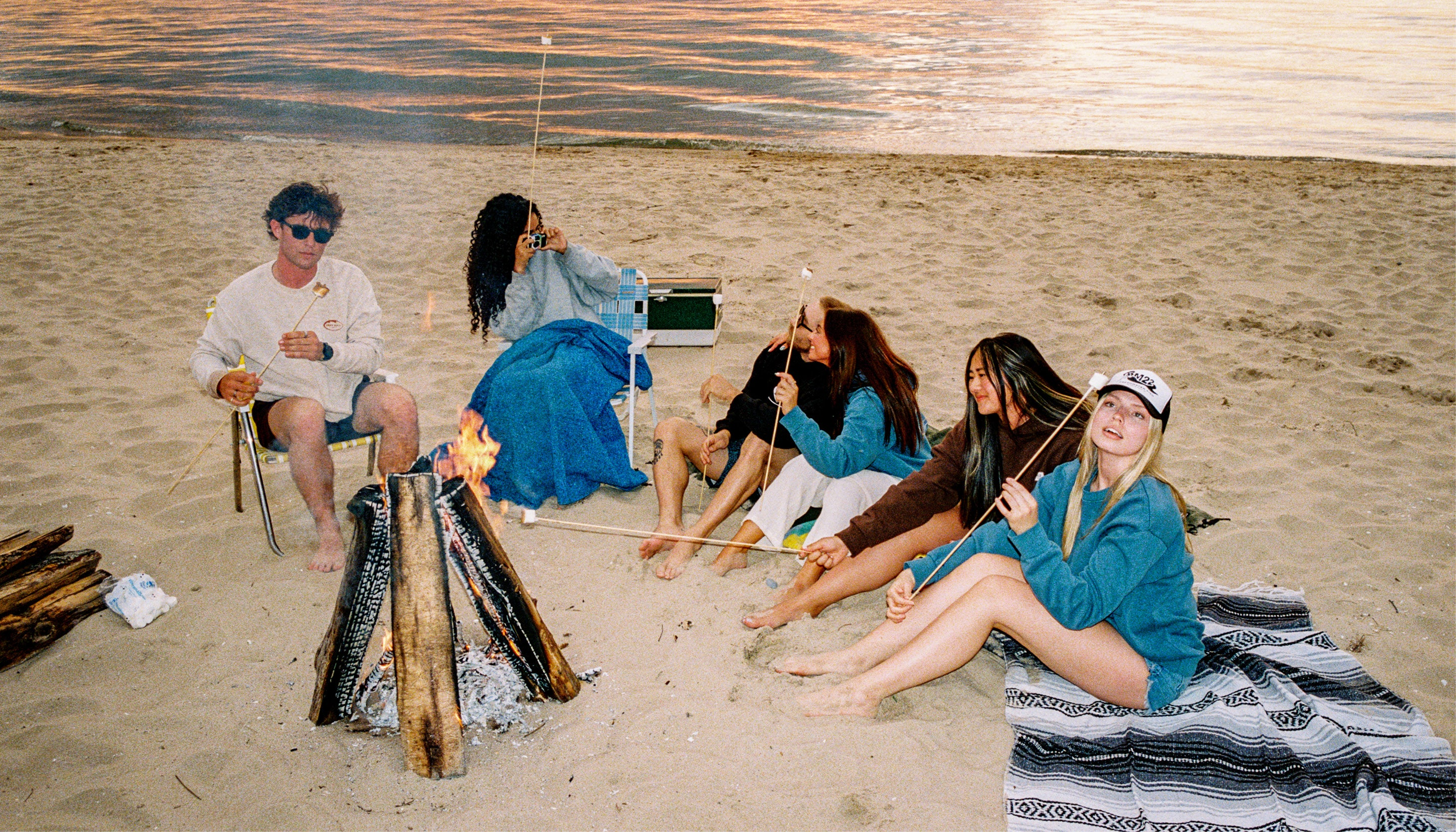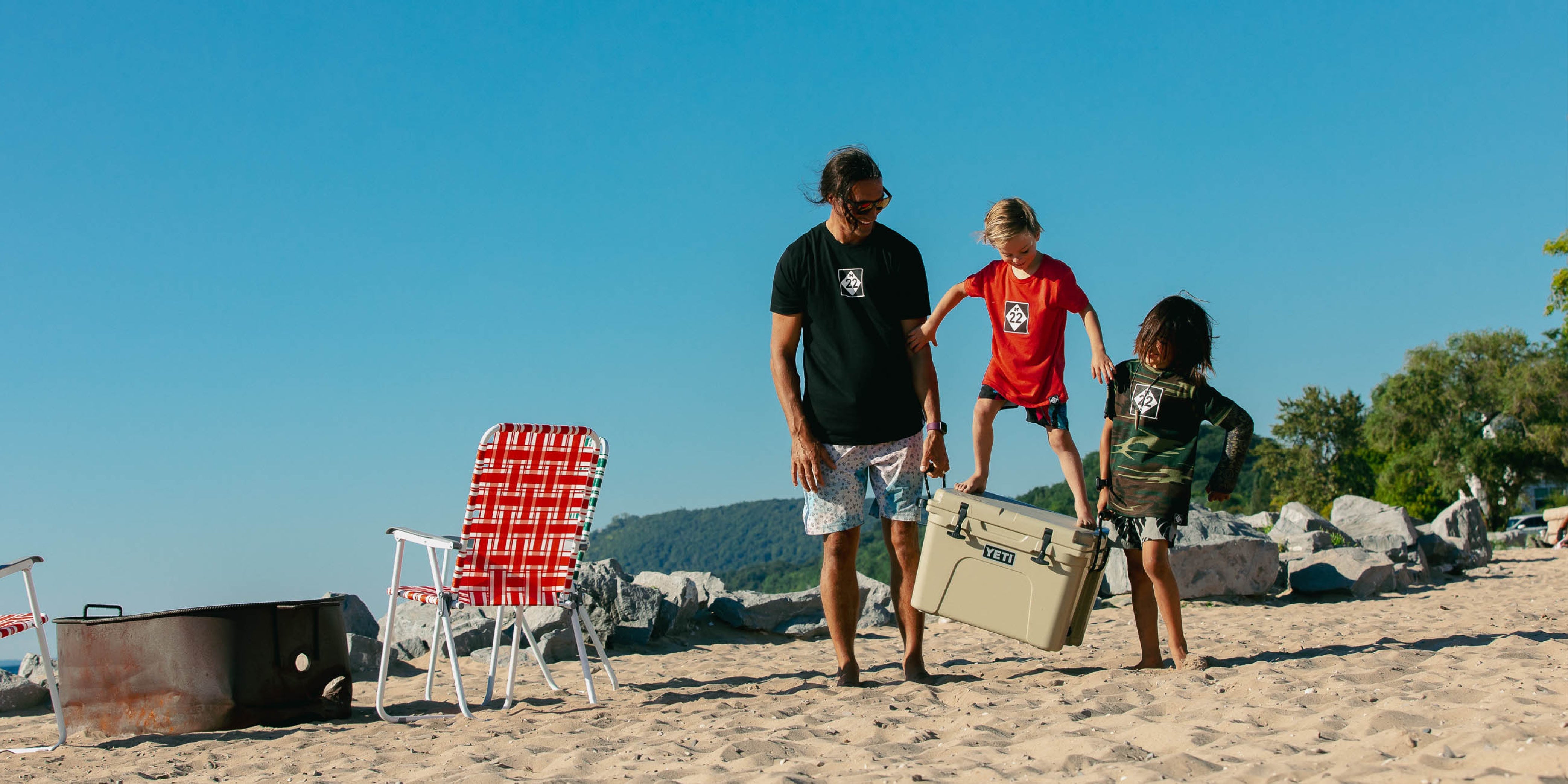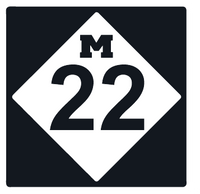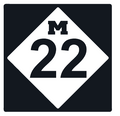TRADEMARKS
M22 Keeps Trademark Protection After Agreement with State of Michigan
03/05/2019 Traverse City, MI — M22, LLC, the iconic northern Michigan outdoor brand, will keep its federal trademark protection for the M22 logo following an agreement with the State of Michigan.
In a settlement signed on February 28, M22 released the State from any grievances or future suits in trade for the State dismissing all claims against M22. The settlement also entails that M22 cannot be challenged by the State again on the matter and retains full rights to protect its trademark for retail and apparel nationwide.
“This is a huge win for our customers and our team,” said Keegan Myers, co-founder of M22, LLC. “It’s been a long struggle for us, but we stayed with it because we believed in the strength of our brand and what it means to our loyal customers and employees.”
Brothers Keegan and Matt Myers founded the company in 2004. M22 first filed the logo for a federal trademark in 2006 and was awarded in 2007. After the US Patent and Trademark Office’s required five-year period of consecutive use, the trademark had become “incontestable,” the strongest status for a trademark.
However, in 2012 then Michigan State Attorney General Bill Schuette wrote an opinion claiming no entity could claim control over a highway marker design because it was public domain. This opinion kicked off a seven year legal contest at both the state and federal level.
Earlier this year, Attorney General Dana Nessel succeeded Bill Schuette, and her office re-examined the case, deciding not to move forward with litigation.
“We’ve believed that our position on the law has been correct from day one,” said John Di Giocomo, partner at Revision Legal and M22’s lead attorney on the case. “Now, seven years later, we are glad that the new attorney general has reviewed the case and has determined that it is not worth pursuing further.”
With the trademark undisputed, M22 will continue to protect the brand. The company holds several federal trademarks extending to any retail and apparel products as well as the M22 Challenge race. The trademark does not prevent businesses from using “M-22” to describe a location or directions.
“We’re thankful to have come to an amicable solution with the State of Michigan,” said Matt Myers, co-founder at M22, LLC. “We love our state, and our outdoor brand reflects the passion we have for northern Michigan and exploring its natural wonders.”
What's up with M22’s trademark?

M22 owns a family of Registered Trademarks to protect our brands. M22, LLC is the owner of numerous common law and registered trademarks for the M22 characters and design. M22, LLC is the owner of federally registered trademark rights in the M22 mark for use in association with hats, t-shirts, long sleeve shirts, sweat shirts, pants, shorts, underwear, tank tops, wine, and retail store services. Additionally, it is the owner of rights to the M-22 Challenge mark for use in association with athletic competitions. The below are links to M22, LLC’s trademark registrations with the United States Patent and Trademark Office:
http://tsdr.uspto.gov/#caseNumber=3348635&caseType=US_REGISTRATION_NO&searchType=statusSearch
http://tsdr.uspto.gov/#caseNumber=3427900&caseType=US_REGISTRATION_NO&searchType=statusSearch
http://tsdr.uspto.gov/#caseNumber=3992151&caseType=US_REGISTRATION_NO&searchType=statusSearch
http://tsdr.uspto.gov/#caseNumber=3992159&caseType=US_REGISTRATION_NO&searchType=statusSearch
http://tsdr.uspto.gov/#caseNumber=3996410&caseType=US_REGISTRATION_NO&searchType=statusSearch
http://tsdr.uspto.gov/#caseNumber=85135576&caseType=SERIAL_NO&searchType=statusSearch
Why should you be able to have trademark rights to M22?
Trademark rights are created by using a word, name, or symbol in commerce in association with the sale of goods or services. See 15 U.S.C. § 1127. “The first to use a mark in the sale of goods or services is the ‘senior user’ of the mark and gains common law rights to the mark in the geographic area in which the mark is used.” Allard Enterprises, Inc. v. Advanced Programming Res., Inc., 249 F.3d 564, 572 (6th Cir. 2001). Federal registration provides nationwide priority over all others to use a trademark in association with the sale of the goods or services listed in the trademark registration. Id.
Since M22, LLC was the first to use the M22 mark in association with the sale of hats, t-shirts, long sleeve shirts, sweat shirts, pants, shorts, underwear, tank tops, wine, stickers, accessories, and retail store services, M22, LLC obtained common law trademark rights to the M22 mark. Additionally, through its numerous trademark registrations with the United States Patent and Trademark Office, M22, LLC has rights to the M22 mark across the United States.
While this means that M22, LLC can prevent others from selling similar goods bearing the M22 mark, it does not mean that M22, LLC can prevent businesses from truthfully indicating their location with the term “M-22.” For example, while it is trademark infringement to sell wine bearing the M22 mark, it is not infringement to state that your store is located on M22. Trademark law is intended to protect against consumer confusion, and M22, LLC enforces its trademark rights to ensure that consumers are not confused into believing that copycat and counterfeit goods originate from M22, LLC. M22, LLC takes pride in the quality of its merchandise and the goodwill inherent in its brand, and it takes steps to ensure that consumers can continue to expect quality goods when they reach for goods bearing the M22 mark.
But I thought the Attorney General said that M22 can’t have trademark rights in a road sign?
On May 29, 2012, State Representative Frank Foster asked Michigan Attorney General Bill Schuette to issue an opinion on M22, LLC’s trademark registrations. Representative Foster initiated this request after M22, LLC sent a demand letter to a store within his district that was selling, in M22, LLC’s attorney’s opinion, counterfeit copies of M22 wine and using M22, LLC’s winemaker to do so. On May 29, Attorney General Schuette issued an opinion purporting to analyze the law applicable to M22, LLC’s trademark rights.
It is worth noting, however, that the Michigan Attorney General’s opinions are advisory in nature and have no precedential authority in Michigan courts. An attorney general’s opinion does not bind the state courts. See Northland Family Planning Clinic, et al. v. Cox et al., 487 F.3d 323, 338 (6th Cir. 2007) (recognizing that the Attorney General of Michigan’s opinions cannot bind the state courts). “[A]n Attorney General’s Opinion has no precedential value, and can be revised any time by this or successive Attorneys General.” Id. And, in our system of government, a state attorney general’s opinion has no effect on federal law, which governs trademark registration with the United States Patent and Trademark Office. See 15 U.S.C. § 1051.
Additionally, Attorney General Schuette’s opinion is incorrect and poorly researched. The principal claim of the Attorney General’s opinion is that, since the State of Michigan “placed the Michigan highway route marker design in the public domain, no entity can lawfully obtain intellectual property protection of the design under trademark or copyright law.” For this position, the Attorney General relies primarily on the US Supreme Court case of Dastar Corp. v. Twentieth Century Fox Film Corp.
In that case, Dastar repackaged a formerly copyrighted television series, “Crusade in Europe,” in a new form and sold it for substantially less than Twentieth Century Fox, the creator of the television series. Since Twentieth Century Fox failed to renew its copyright rights, “Crusade in Europe” fell into the public domain and Dastar could not be sued for copyright infringement. Instead, Twentieth Century Fox attempted to sue Dastar for trademark infringement.
In determining that Dastar could not be held liable for trademark infringement, the Supreme Court found that because Dastar had repackaged “Crusade in Europe” and sold it as its own, not as a product of Twentieth Century Fox, it could not be held liable for trademark infringement because it did not attempt to pass off “Crusade in Europe” as originating from Twentieth Century Fox. In short, because Dastar took “Crusade in Europe,” made it its own, and sold it under its own brand, it could not be held liable for trademark infringement. See Dastar Corp. v. Twentieth Century Fox Film Corp., 539 U.S. 23, 37 (2003).
Though the Attorney General cites Dastar for his claim that M22, LLC cannot have trademark rights in the M22 mark, the case stands for exactly the opposite conclusion. Just like Dastar, M22, LLC has taken an image admittedly (by the State of Michigan) in the public domain and made it its own by selling goods under that symbol and obtaining trademark rights in that symbol through its use.
And contrary to popular belief, this is not uncommon. Signs are so frequently incorporated into registered trademarks that the United States Patent and Trademark Office’s design code manual assigns a specific code to them to ensure that they are categorized correctly within the United States Patent and Trademark Office database. See http://tess2.uspto.gov/tmdb/dscm/dsc_18.htm#1815. Numerous trademarks incorporate formerly public domain works, including some of the most popular brands in the world, such as Disney’s Sleeping Beauty brand, http://tsdr.uspto.gov/#caseNumber=77977607&caseType=SERIAL_NO&searchType=statusSearch, and US-1, another mark incorporating a road sign,http://tsdr.uspto.gov/#caseNumber=85252709&caseType=SERIAL_NO&searchType=statusSearch. In short, the Attorney General’s opinion is simply an incorrect statement of the law.
If you have any questions about M22's trademarks, please contact us at sales@m22.com. M22 is always open to discussing its trademarks with third parties to avoid potential conflicts.
Trademark Policy
The M22 and LOVE Michigan brands and logos are protected REGISTERED Trademarks with the United States Patent and Trademark Office, an agency of the United States Department of Commerce. Owning the REGISTERED trademark provides several advantages including:

- Constructive notice to the public of the registrant's claim of ownership.
- A legal presumption of the registrant's ownership of the mark and the registrant's exclusive right to use the mark nationwide on or in connection with the goods and/or services listed in the registration.
- The ability to bring an action concerning the mark in Federal Court.
- The use of the U.S. registration as a basis to obtain registration in foreign countries.
- The ability to file the U.S. registration with the U.S. Customs Service to prevent importation of infringing foreign goods.
M22 believes transparency is important to any successful business and would like to take this opportunity to address some of the confusion around our M22 trademark. There are many statements being made that are not true. This is somewhat understandable given trademark law is complicated. Here are some basic issues we would like to address:
- M22 has never sued anyone. We have sent “cease and desist letters” if someone is infringing on our trademark. This is a last resort. We try to discuss the subject first as sending these letters is costly and not as friendly as we strive to be. Most of the time, people thank us for informing them and respect our rights as trademark owners. By federal law, we are required to do this to maintain our trademark.
- Trademarks exist to protect you, the customer. When you purchase an M22 product or see one on the market, you should expect that it came from us. M22 has created a Brand Guideline and set Quality Standards so our customers can be assured we use the highest quality items we can source, sourced from certified companies, embellished in specific ways, and marketed with our specific style. Whether you are from Michigan, or out of state as many of our customers are, people should not see a similar logo and wonder if it is produced by M22.
- M22 does not own, or claim to own, all road signs in Michigan. The M-22 road sign is still in the public domain as it always has been. Our trademark protects the category of goods and services provided in association with the M22 brand against any logo that could be confused with, or dilute, what we offer. Before we created the brand “M22”, the M-22 road sign, and similar signs, were not used on the goods and services we offer. We have worked hard to create our brand and within that, a secondary meaning for M22 that goes beyond the road sign. Companies have tried to copy our business model and reap the benefits of M22’s goodwill as a brand by using another road signs similar to, or the same as, our trademark. If this dilutes our brand, or a person could be confused by another product on the market similar to ours, then by law, we must address the issue.
- We do give back and we do share. M22 has generated millions of dollars in taxes. The M22 brand has highlighted not only the healthy, active lifestyle it represents, but also our local area and businesses state-wide. It has given back thousands of dollars a year to the Leelanau Conservancy and was awarded the 2015 Business Donor or the Year. It supports businesses in Northern Michigan by using their services rather than outsourcing. We sponsor school teams, events, athletes, and ambassadors from around the country. We employee many full time staff members and seasonal employees locally, and wholesale our products to dozens of retailers who each contribute to their local economy.







